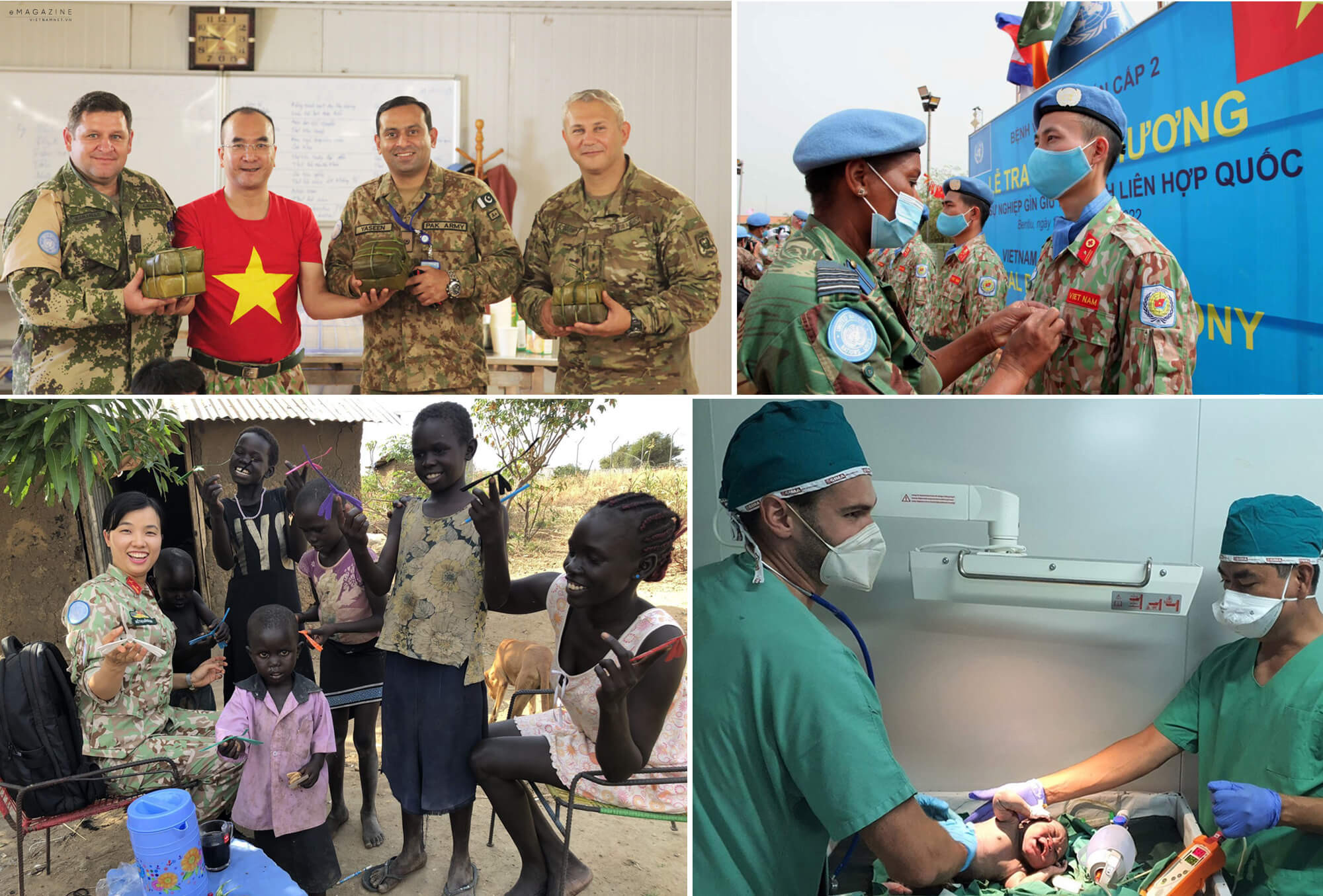
Major General Hoang Kim Phung spoke with VietNamNet about the eight years of participation in the UN’s peacekeeping operations, during which Vietnam’s blue-beret soldiers have left a good impression among locals, and have been recognized by international friends and praised by the UN.
Phung is Director of the Vietnam Department of Peacekeeping Operations.
More Vietnamese soldiers will leave in some days to implement the UN’s peacekeeping duties. Is this the participation at the largest scale so far, and the first time Vietnam is sending engineers?
On April 27, Vietnam will organize a troop dispatching ceremony for level-2 field hospital No 4 and the engineer corps. Since Vietnam started participating the UN’s peacekeeping operations in June 2014, this is the first time we have sent such a large force.
The team of corps of engineers have been preparing for more than five years for the duty, comprising highly qualified personnel. They are all engineers, machine experts, and high-level construction workers selected from 21 units. In addition, in the formation, there are communication forces, level 1 field hospitals and other security forces. There are also a communications force, level-1 field hospital and other forces.
The Military Commission of the Party Central Committee and head of the Ministry of National Defence have asked us to direct forces on duty in a way so as to ensure safety at the highest level. Vietnam signed with the UN an agreement under which Vietnam has the right to refuse tasks with high risks or tasks contrary to Vietnam’s customs and foreign policy.
The forces all have prepared well in psychology, professional knowledge and experience in operating in the multilateral environment of UNISFA (The United Nations Interim Security Force for Abyei).
The United Nations' advance inspection party tested the capacity of 184 Vietnamese officers and soldiers, along with weapons and equipment.
All the forces, equipment and supplies are ready, and I am confident that the officers will successfully complete the tasks assigned to them.
How were the forces trained to meet the requirements of the mission?
The Military Commission of the Party Central Committee and head of the Ministry of National Defence have created favorable conditions for the engineer corps to access good weapons and equipment for the implementation of the tasks.
The two major tasks our engineers of corps will deploy at UNISFA are building ground works (airports, harbors, water drainage works and camps), drilling wells to serve the lives of refugees, and building multi-storey houses.
If other countries take responsibility to implement the task, they will need time to prepare and get trained. Meanwhile, our engineers have good experience in building national defense works which are much more complicated.
In the last eight years, from the day Vietnam sent its first two officers, to the day it started running a field hospital, and now the engineering team, we have gone a long way from implementing simple to complex tasks, from independent activities of individuals to collective operations, from small-scale units to larger-scale units.
We have also won the affection and built the prestige of Uncle Ho's army in countries such as South Sudan, Sudan, and the Central African Republic.
So, when sending the engineering team, Vietnam received significant support from host countries, the consensus of international friends and the support of the UN.
What does joining the peacekeeping force mean for Vietnam's foreign defense policy?
In today's flat world, no country can stay out of conflicts, wars, and non-traditional security challenges.
The documents of the 12th and 13th Party Congresses all put emphasis on international integration in the new conditions. The Military Commission of the Party Central Committee and head of the Ministry of National Defence pointed out that the army must be the shock troops, the leading force in the new front, which participate in UN peacekeeping operations to demonstrate the responsibility of a member state.
The peoples in Africa see Vietnamese army officers as a noble force that act for their progress and peace. In 2019, the South Sudanese administration decided to establish diplomatic relations with Vietnam.
Central African Republic’s leaders want to have more presence of the Vietnamese People's Army and the presence of experts in other fields such as mining, agriculture, postal and telecommunications, etc. They see that these are the strengths of Vietnam and they see the impartiality of Vietnamese officers.
In the last eight years, Vietnam has sent more than 200 officers and soldiers to join peacekeeping operations. The officers and soldiers don’t violate any regulations of the UN and the Vietnam People’s Army. I think that Vietnam is one of a few countries that doesn’t break discipline.
The multilateral relations have helped promote bilateral relations and we have signed nine memoranda of understanding on cooperation for peacekeeping.
How will the experience from the previous participations help the peacekeeping operations this time?
The number of Vietnamese officers fulfilling their task at an excellent level is very high, at 33.3 percent, while the average level is 1-2 percent only.
Vietnam's engineer team has a very high percentage of women with 23 women, over 12.5 percent, while the figure is just 6-7 percent in other countries. In addition, level-2 field hospitals also have a high percentage of women (level-2 field hospital No 3 has 13 women out of total 63 people, which accounts for 17 percent).
Where there are Vietnamese officers, there is the trust of UN leaders.
In October 2019, when meeting President Nguyen Xuan Phuc who was then Prime Minister, United Nations Secretary-General António Guterres said that Vietnamese officers were one of the most prestigious forces and have the capacity to perform the UN’s missions.
Tran Thuong